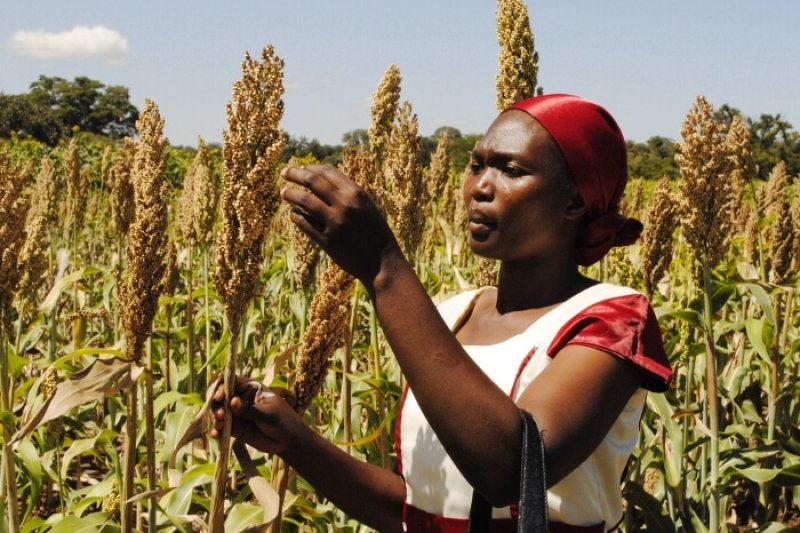Up to half a million children around the world are going blind every year due to a lack of Vitamin A in their diets.
…
In Kenya, scientists are tackling this problem by developing biofortified sorghum, a staple crop that has been genetically modified to contain higher levels of Vitamin A. More than 300 million sub-Saharan Africans depend on sorghum as their primary calorie source. Its drought- and heat-tolerant properties mean it is a vital crop in drought-prone countries, where irrigation is not always accessible or affordable. Improving the nutritional level of staple crops can provide both food and nutritional security.

The Africa Biofortified Sorghum, or ABS, project is a public-private partnership established to tackle chronic Vitamin A deficiency in children, as well as improve levels of zinc and iron. If it gets commercial approval, it will be the first-ever biotech sorghum on the market.
…
“With the work that I am doing with biofortified sorghum, we are not trying to change the way people live, we are just improving the available nutrients in what they already have,” said [Dr. Titus Magomere, one of the scientists involved in the project.]
“We hope once the product is ready, a meal of sorghum, which will be available to the local farmers, will reduce nutritional deficiencies significantly.”
The GLP aggregated and excerpted this blog/article to reflect the diversity of news, opinion, and analysis. Read full, original post: The sorghum plant that could tackle blindness































